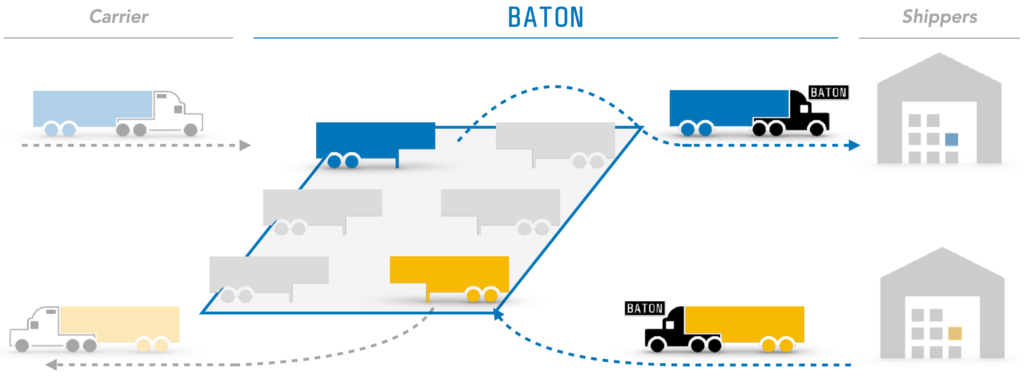
For truck drivers, time on the road is money in the pocket. Drivers aren’t paid hourly. They’re paid by the mile.
Ask a long-haul truck driver about the annoyances of the job, and many will undoubtedly respond with the time they waste while waiting to get their trucks unloaded. Some trucking companies offer Detention Pay for the period when drivers have to sit around and wait, but this isn’t a replacement for the reliable Cents-Per-Mile that drivers get while hauling freight.
But what if there was a way to eliminate the waiting and unloading time altogether?
Drop-and-Hook
To some degree, there is a solution for drivers who don’t want to wait around for half a day for their trailer to be unloaded. This solution is drop-and-hook freight.
Drop-and-hook freight means that a truck driver can drop their trailer off and hook up new trailer (loaded or unloaded). In theory, drop-and-hook speeds up the delivery process, but there can still be obstacles.
Sometimes the trailer you need is not in a location you can immediately access. Other times, you may be able to hook up a trailer on one end, but you’ll still be required to have a live load/unload at the other end.
Are Drop Zones the Answer?
One San Francisco start-up company believes they have the answer. Drop zones.
Baton has raised $10.5 million to create a network of drop zones where OTR drivers can pull up, drop their trailer, and leave. The trailers can later be picked up by local or regional drivers to be taken to the final destination.
These drop zones will be open 24 hours – no more sleeping over at a closed shipping receiver! And they’ll be located outside of popular metropolitan cities.
Where Will the Drop Zones Be?
Currently, Baton has drop zones in Los Angeles, and more are planned for Dallas, Atlanta, and Chicago.
According to Baton, the first and final mile are the most inefficient for long-haul driving. With the operations and software provided by Baton, the company believes that they can eliminate inefficiencies and maximize profits.
Is this the future for truck drivers? More time and more money?
